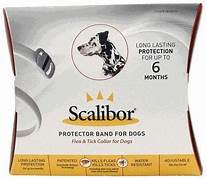Does Canada Pet Care Require a Prescription?
In Canada, prescription requirements for pet care can vary depending on the type of medication or treatment being sought. While some medications, such as antibiotics or pain relievers, may require a prescription from a veterinarian, others may not. This article will provide an overview of when and why a prescription is needed for pet care in Canada.

When is a Prescription Required for Pet Care in Canada?
1. Prescription Medications: Certain medications used to treat illnesses or conditions in pets, such as antibiotics, pain relievers, and certain hormone therapies, require a prescription from a veterinarian. This is because these medications can have serious side effects if not used correctly.
2. Controlled Substances: Some medications, such as opioids and certain sedatives, are considered controlled substances in Canada. These medications have a high potential for abuse and can only be prescribed and dispensed by a veterinarian with a special license.
3. Off-Label Use: In some cases, a veterinarian may prescribe a medication for a pet that is not specifically approved for that particular use. This is known as "off-label" use. While this is generally allowed in Canada, it is important to understand that there may be potential risks and limitations associated with off-label use.
When is a Prescription Not Required for Pet Care in Canada?
1. Non-Prescription Medications: Some medications, such as over-the-counter pet vitamins, supplements, and certain flea and tick treatments, do not require a prescription in Canada. These products are generally considered safe for use without a veterinarian's approval.
2. Homeopathic Remedies: Homeopathic remedies, which are natural and holistic treatments, do not require a prescription in Canada. However, it is important to use these remedies with caution and discuss their potential benefits and risks with a veterinarian.
Importance of Consulting a Veterinarian
1. Ensuring Appropriate Treatment: A veterinarian is the best resource for determining the appropriate treatment for a pet's illness or condition. They can assess the pet's overall health, identify the underlying cause of the problem, and prescribe the most effective medication or treatment plan.
2. Avoiding Potential Risks: Some medications, even if available over-the-counter, can have serious side effects if not used correctly. A veterinarian can provide guidance on the safe and effective use of these medications, minimizing the risk of adverse reactions.
3. Maintaining Pet's Health: Regular checkups with a veterinarian are essential for maintaining a pet's overall health. These checkups allow the veterinarian to monitor the pet's progress, adjust treatment plans as needed, and ensure that the pet is receiving the best possible care.
It is important to note that prescription requirements for pet care in Canada can change over time. Always consult with a veterinarian to ensure that you are following the most up-to-date regulations and guidelines.
Declaration: All article resources on this website, unless otherwise specified or labeled, are collected from online resources. If the content on this website infringes on the legitimate rights and interests of the original author, you can contact this website to delete it.





